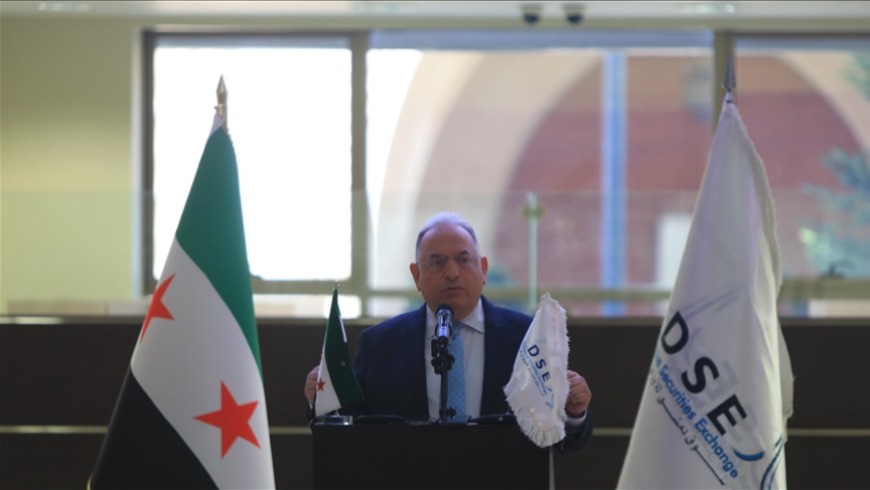The Syrian Ministry of Finance recently announced the formation of a central governmental committee tasked with reforming the country’s tax system. The committee is expected to review the existing structure of taxes and fees and propose a new, comprehensive tax regime. Notably, the ministry emphasised the inclusion of representatives from the private sector—an unprecedented move that has attracted attention and cautious optimism.
While this initiative marks a significant and much-needed step toward fiscal reform and strengthening state revenues, it also raises several structural and procedural concerns. These merit consideration if the committee is to deliver a tax framework that supports Syria’s transitional governance and lays the groundwork for a renewed social contract between citizens and the emerging Syrian state. Such a contract must be rooted in justice, trust, and good governance—principles essential to long-term stability.
Gaps in Representation and Transparency
The committee comprises the Minister of Finance as chair, alongside his deputy, the Assistant Minister of Economy and Industry, senior finance officials, the Dean of the Faculty of Economics at Damascus University, the president of the Association of Chartered Accountants, two unnamed experts, and representatives from the chambers of commerce and industry in Damascus and Aleppo, as well as the General Authority for Ports and Border Crossings.
Despite the inclusion of private sector voices—a positive and overdue development—the committee lacks any significant legal or independent civic representation. Absent are members from professional syndicates, labour unions, and civil society organisations, particularly those representing communities most affected by the war. Such exclusions risk undermining the committee’s legitimacy and its ability to reflect the needs of all Syrians, not just the economic elite.
Unclear Mechanisms and Tight Timelines
The committee is scheduled to complete its work by 30 July. However, the founding decree is silent on critical procedural matters such as decision-making mechanisms, voting protocols, or the possibility of deadline extensions to ensure quality outcomes. Furthermore, the responsibility for recording minutes and coordinating proposals falls solely on the Tax and Duties Authority—an arrangement that may limit independent oversight.
One of the most consequential yet overlooked elements of the announcement is the provision allowing the committee to consult with experts from international and regional institutions. While potentially valuable, this clause lacks specificity about the nature of these experts, their roles, or the institutions involved. Without clear standards of transparency and accountability, foreign consultancy may complicate rather than enhance the reform process.
A Pillar of the New Social Contract
Taxation is not merely a tool for revenue collection; in a post-conflict context, it becomes a cornerstone of the emerging relationship between state and citizen. For Syria, reforming the tax system must be seen as part of a broader effort to rebuild public trust through fairness, transparency, and participation.
The success of the committee should therefore not be measured solely by the technical merit of its recommendations, but also by its adherence to the principles outlined in the transitional constitutional declaration—particularly in the absence of a functioning legislative body that can represent popular will.
Recommendations for Inclusive and Accountable Reform
To that end, the Ministry of Finance and the Tax Reform Committee should immediately publish a detailed, time-bound work plan and internal bylaws governing decision-making. Meeting minutes should be recorded and made available for public oversight.
Additionally, a parallel civil advisory body should be established—comprised of experts, civil society representatives, and regional voices—to offer opinions and recommendations, and to publicly document its deliberations. This would enhance the legitimacy of the reform process and ensure that outcomes reflect the public interest, not merely bureaucratic consensus.
When engaging with foreign consultants, their roles, contractual terms, and the institutions they represent must be clearly defined and subject to public disclosure. Relevant reports should be published, and the advisory body must be kept informed to guard against external interference in domestic policy decisions.
Given the scope of these requirements, it is highly unlikely that two months will suffice to deliver a credible and inclusive tax reform proposal. What matters most, however, is not speed but the quality and legitimacy of the resulting system—one that fairly governs the fiscal relationship between state and society, promotes equity, and supports the decentralisation of administrative and financial authority across Syria’s diverse regions. This includes allocating locally collected revenues to the communities where they are generated, ensuring equitable distribution of public wealth.
The Role of the Legislative Authority
Finally, it must be emphasised that the committee’s role is advisory and preparatory. Its final proposal for a new tax system must be submitted to the forthcoming transitional legislative authority once it convenes. This is essential to uphold the principle of separation of powers and ensure that financial policies affecting citizens’ daily lives are subject to democratic scrutiny.
Only through such transparent, participatory processes can Syria lay the foundations for a resilient economy and a truly inclusive state—built not just by technocrats, but in partnership with its people.
This article was translated and edited by The Syrian Observer. The Syrian Observer has not verified the content of this story. Responsibility for the information and views set out in this article lies entirely with the author.


